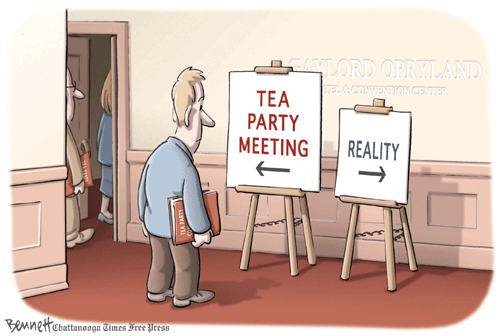In this 9/2012 article, Charles Eisenstein questions why progressives and conservatives alike automatically assume the purpose of economic policy is to stimulate growth.
"So ubiquitous is the equation of growth with prosperity that few people ever pause to consider it. What does economic growth actually mean? It means more consumption – and consumption of a specific kind: more consumption of goods and services that are exchanged for money. That means that if people stop caring for their own children and instead pay for childcare, the economy grows. The same if people stop cooking for themselves and purchase restaurant takeaways instead. So ubiquitous is the equation of growth with prosperity that few people ever pause to consider it..."
"The reason is that our present money system can only function in a growing economy. Money is created as interest-bearing debt: it only comes into being when someone promises to pay back even more of it. Therefore, there is always more debt than there is money. In a growth economy that is not a problem, because new money (and new debt) is constantly lent into existence so that existing debt can be repaid. But when growth slows, good lending opportunities become scarce. Indebtedness rises faster than income, debt service becomes more difficult, bankruptcies and layoffs rise."
http://www.theguardian.com/commentisfree/2012/sep/03/debt-federal-reserve-fixation-on-growth
Eisenstein's solutions include exchanging luxury for leisure and convincing the Fed to incorporate debt forgiveness with quantitative easing.
"So ubiquitous is the equation of growth with prosperity that few people ever pause to consider it. What does economic growth actually mean? It means more consumption – and consumption of a specific kind: more consumption of goods and services that are exchanged for money. That means that if people stop caring for their own children and instead pay for childcare, the economy grows. The same if people stop cooking for themselves and purchase restaurant takeaways instead. So ubiquitous is the equation of growth with prosperity that few people ever pause to consider it..."
"The reason is that our present money system can only function in a growing economy. Money is created as interest-bearing debt: it only comes into being when someone promises to pay back even more of it. Therefore, there is always more debt than there is money. In a growth economy that is not a problem, because new money (and new debt) is constantly lent into existence so that existing debt can be repaid. But when growth slows, good lending opportunities become scarce. Indebtedness rises faster than income, debt service becomes more difficult, bankruptcies and layoffs rise."
http://www.theguardian.com/commentisfree/2012/sep/03/debt-federal-reserve-fixation-on-growth
Eisenstein's solutions include exchanging luxury for leisure and convincing the Fed to incorporate debt forgiveness with quantitative easing.





